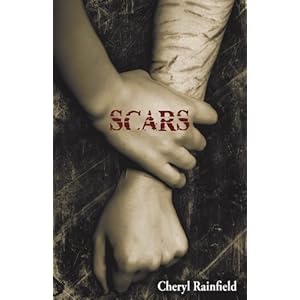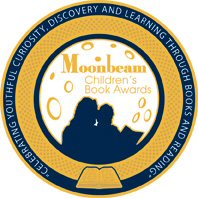There has been such an uproar over teen books these days since the
WallStreet Journal article that accused YA novels of being "rife with depravity" and "so dark that kidnapping and pederasy and incest and brutal beatings are now just part of the run of things." Everyone has been weighing in, including well known authors like Judy Bloome, Neil Gaiman, and Laurie Halse Anderson. Bloggers have been frenzied in their rebuttals and facebook has been awash with links. Even National Public Radio has weighed in on the subject. Still, some continue to wave the "teen protectionists" flag, which is usually synonymous with book banning. For a balance overview of the controversy, check out Publisher Weekly's
"Are Teen Novels Dark and Depraved — or Saving Lives?" by Karen Springen yesterday.

Personally, I'm of the opinion that YA literature gives a voice to what is sometimes to painful to share. Books about difficult subjects such as: suicide, self-harm, teen prostitution, rape, and addiction are all examples. Authors like Laurie Halse Anderson, Ellen Hopkins, Cheryl Rainfield and others can show you dozens of emails and letters they receive from young people who confirm that reading has saved their lives. Books about real life challenges young people face lets them know that they are not alone; that others have had similar experiences, and that they can survive similar terrible experiences.

Books can also be pre-emptive. They can also show a reader the eventual result of taking a certain path without actually having to do so themselves. A realistic book for young people with believable characters about about self-harm, such as
Scars by Cheryl Rainfield, or
Crank by Ellen Hopkins, may be enough to get a teen to seek help before heading down that path. A book like
Speak by Laurie Halse Anderson, may prevent a teen from blaming themselves in the terrible event that they are raped. A book like
The Hunger Games by Suzanne Collins, may move young people to think about ways to prevent wars down the road.

There are so many positives about realistic teen fiction these days that it's hard to believe this even needs to be discussed. Of course dark books are not for every teen. But they should always be available to those who need or want to read them, especially for those kids whose lives have literally been saved by knowing that they are not alone, and that they have options.
 Personally, I'm of the opinion that YA literature gives a voice to what is sometimes to painful to share. Books about difficult subjects such as: suicide, self-harm, teen prostitution, rape, and addiction are all examples. Authors like Laurie Halse Anderson, Ellen Hopkins, Cheryl Rainfield and others can show you dozens of emails and letters they receive from young people who confirm that reading has saved their lives. Books about real life challenges young people face lets them know that they are not alone; that others have had similar experiences, and that they can survive similar terrible experiences.
Personally, I'm of the opinion that YA literature gives a voice to what is sometimes to painful to share. Books about difficult subjects such as: suicide, self-harm, teen prostitution, rape, and addiction are all examples. Authors like Laurie Halse Anderson, Ellen Hopkins, Cheryl Rainfield and others can show you dozens of emails and letters they receive from young people who confirm that reading has saved their lives. Books about real life challenges young people face lets them know that they are not alone; that others have had similar experiences, and that they can survive similar terrible experiences.  Books can also be pre-emptive. They can also show a reader the eventual result of taking a certain path without actually having to do so themselves. A realistic book for young people with believable characters about about self-harm, such as Scars by Cheryl Rainfield, or Crank by Ellen Hopkins, may be enough to get a teen to seek help before heading down that path. A book like Speak by Laurie Halse Anderson, may prevent a teen from blaming themselves in the terrible event that they are raped. A book like The Hunger Games by Suzanne Collins, may move young people to think about ways to prevent wars down the road.
Books can also be pre-emptive. They can also show a reader the eventual result of taking a certain path without actually having to do so themselves. A realistic book for young people with believable characters about about self-harm, such as Scars by Cheryl Rainfield, or Crank by Ellen Hopkins, may be enough to get a teen to seek help before heading down that path. A book like Speak by Laurie Halse Anderson, may prevent a teen from blaming themselves in the terrible event that they are raped. A book like The Hunger Games by Suzanne Collins, may move young people to think about ways to prevent wars down the road.  There are so many positives about realistic teen fiction these days that it's hard to believe this even needs to be discussed. Of course dark books are not for every teen. But they should always be available to those who need or want to read them, especially for those kids whose lives have literally been saved by knowing that they are not alone, and that they have options.
There are so many positives about realistic teen fiction these days that it's hard to believe this even needs to be discussed. Of course dark books are not for every teen. But they should always be available to those who need or want to read them, especially for those kids whose lives have literally been saved by knowing that they are not alone, and that they have options.








No comments:
Post a Comment